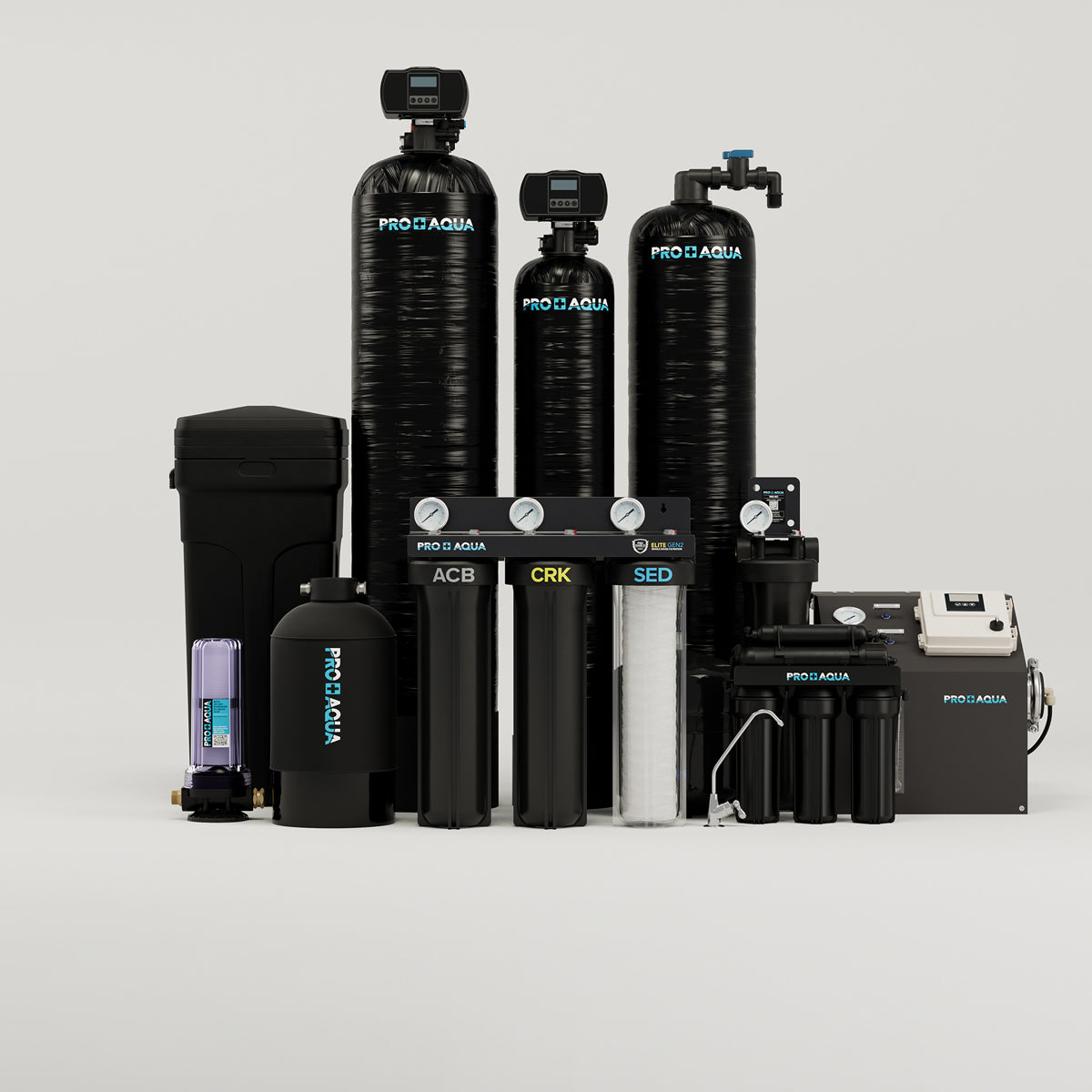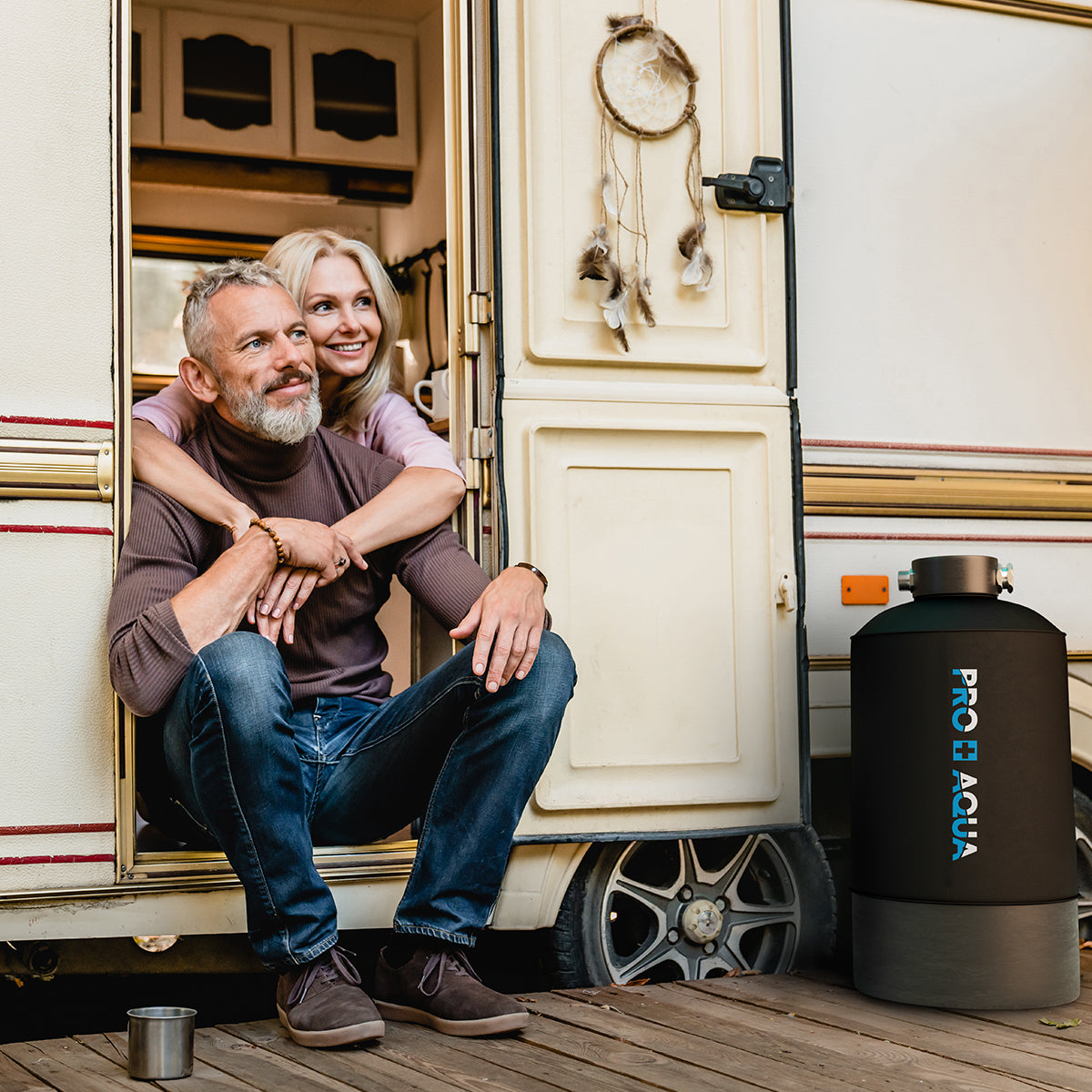Approximately 85 million people in the United States get their water from private wells. Well water is used for drinking, bathing, and cooking. Most of the people who receive water from wells trust that it is safe to use, but well water often contains contaminants that lead to unpleasant odors, flavors, or health concerns. If your water smells like rotten eggs, you may have water contaminated with hydrogen sulfide. What is hydrogen sulfide and its related chemical compound called sulfates? In this guide, we will explore these compounds, including methods for eliminating the dangers and odors with a whole house well water filtration system.
Hydrogen Sulfide: Threat to Human Health
If you have ever turned on your tap and were greeted by water that smells sour, you may have wondered why. That foul odor is a sign of hydrogen sulfide, a chemical compound that can be found in water supplies across the country. Typically, hydrogen sulfide appears in well water, usually in low concentrations. The unpleasant odor – water that smells like rotten eggs – has led to the compound being given colloquial names like swamp gas, sewer gas, or stink damp.
Hydrogen sulfide is a colorless, heavier-than-air gas with a characteristic sulfur odor. Certain bacteria produce the compound as they absorb sulfate ions in water, releasing hydrogen sulfide as a byproduct. It is also produced through the bacterial action of decay, particularly of plant material and animal or human feces. In homes where hydrogen sulfide and/or sulfates are found in the water supply, the foul odor may be more noticeable when running hot water. In fact, hot water heaters often support the growth of sulfate-reducing bacteria, which produce gas through chemical reactions in the heaters.
Hydrogen sulfide may also come from:
- Contamination of wells through agricultural or industrial runoff.
- Damage to the well casing by natural weather events.
- Sewer or septic tank leaks into groundwater supplies.
- Chemical reactions between minerals and metals in aquifers.
In low concentrations, the compound produces no serious health effects, but in higher concentrations, it can lead to severe illness or even death. Hydrogen sulfide is flammable and extremely toxic; in very high concentrations of the gas, such as in confined spaces where the gas collects, a single breath can be instantly fatal.
Sulfates in Water Supplies
Sulfates are anionic salts that can be found in groundwater supplies. The sources of these chemical compounds are the rocks and minerals of subsurface geologic formations. Over time and through erosion, sulfates are released into the water. These compounds are also produced by certain industrial processes and are the chemical behind “acid rain”.
The U.S. Environmental Protection Agency (EPA) sets standards for water contaminants under two classifications: Primary and Secondary Standards. Sulfates fall under the Secondary Standards. According to the EPA, the secondary maximum contaminant level of sulfates is 250 parts per million (ppm).
By themselves, sulfates pose little threat to human health, especially in low concentrations. They can, however, damage plumbing and water-using appliances by promoting corrosion. In fact, water that smells like rotten eggs is often accompanied by the presence of small flakes of black, brown, or rust-colored particles. The corrosive nature of the chemicals can lead to expensive plumbing repairs as well as the release or “leaching” of dangerous levels of metals into drinking water supplies. In some homes, slime produced by bacteria can clog plumbing and fixtures. To protect the health of you and your family and also to ward off expensive damage to your plumbing and appliances, a whole house water filtration system is the ideal solution for removing hydrogen sulfide and sulfates.
Can Hydrogen Sulfide and Sulfates Cause Illness?
Many water supplies, including both municipal sources and water from wells, contain tiny amounts of sulfur ions in the form of sulfates. Usually, the concentration of sulfates is low and poses little threat to human health. Drinking water contaminated with higher levels of sulfates – or with hydrogen sulfide – can, however, lead to illness. Sulfates can have a laxative effect; symptoms associated with drinking water high in sulfates include:
- Diarrhea
- Nausea
- Vomiting
- Cramps
- Headache
- Dehydration

The risk of dehydration is especially high for infants and the elderly. The adult human body eventually acclimates to the presence of sulfates in water and symptoms disappear. The corrosive effects remain, however, and can lead to damaged plumbing, stained fixtures, and discolored clothing.
How Do I Know If I Have Sulfates in My Water?
The distinctive rotten egg odor is a telltale sign that your water supply contains hydrogen sulfide and sulfates. You may have also noticed particulate matter in your water; small flakes of rust-colored or black material from corroding plumbing fixtures. Your clothing may come out of the washer with unsightly stains, and even your silverware may become tarnished after contact with water. All of these are symptoms of water contaminated with hydrogen sulfide, but in order to gauge the amount and the potential danger, laboratory testing of your home’s water is necessary.
Clean, Fresh Water for Your Home
If your water smells like rotten eggs, or you have concerns about the discoloring and corrosion-promoting effects of hydrogen sulfide in your well water, a whole house well water filtration system may be the ideal solution. These filtration systems are installed between the home’s water supply piping and the faucets or fixtures. Some of the most advanced systems have filtration elements in the 3-micron range; the tiny pores of the filter trap contaminants like:
- Iron
- Hydrogen sulfide
- Heavy metals
- Radioactive elements
- Sediments
- Rust
- Silt
Well water filters also improve the taste, odor, and clarity of water supplies. No more water that smells like rotten eggs!
In a whole house well water filtration system, the water passes through the filtration chamber or tank before being delivered to plumbing fixtures in your kitchen and bathroom. Digital valves regulate the flow of water and make the system easy to set up by homeowners. The filtration system may be used in combination with a water softener or a reverse osmosis system, helping to ensure the cleanest, purest, and freshest water for you and your family.








Leave a comment
This site is protected by hCaptcha and the hCaptcha Privacy Policy and Terms of Service apply.